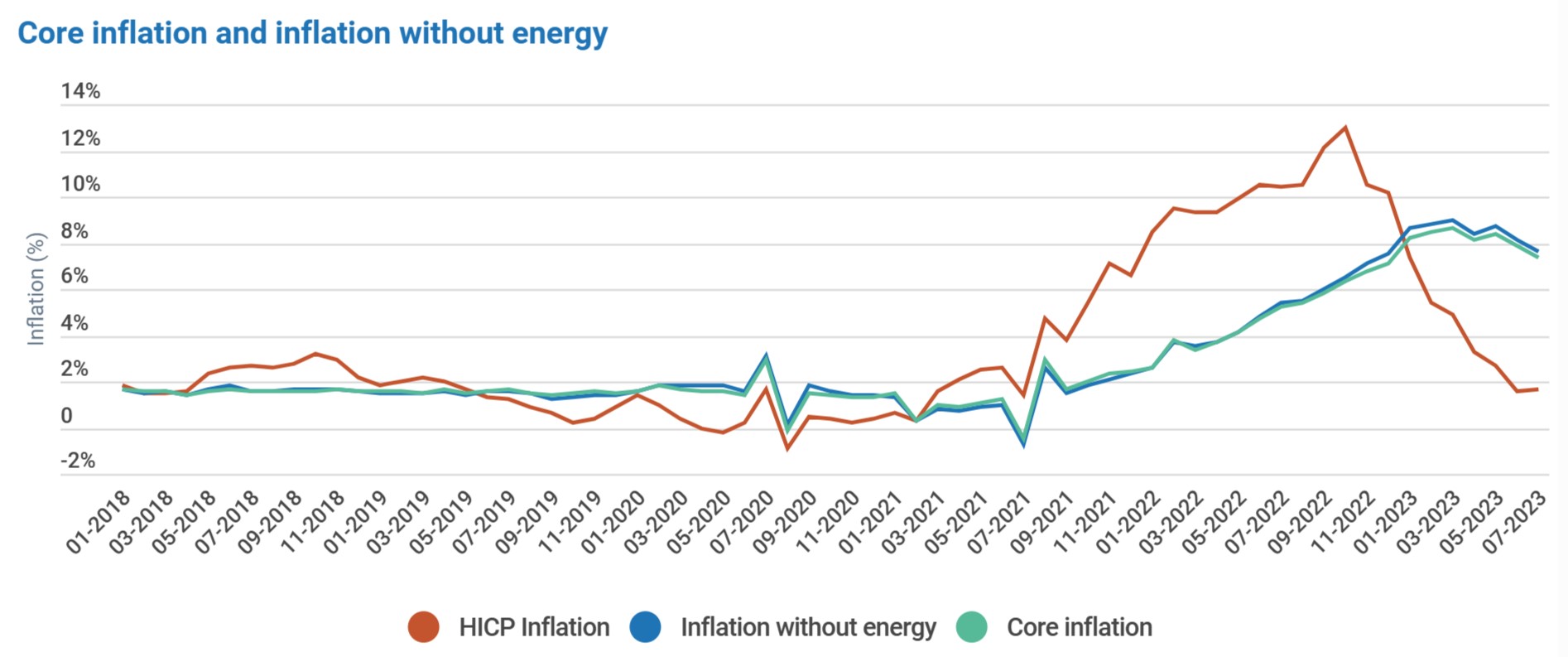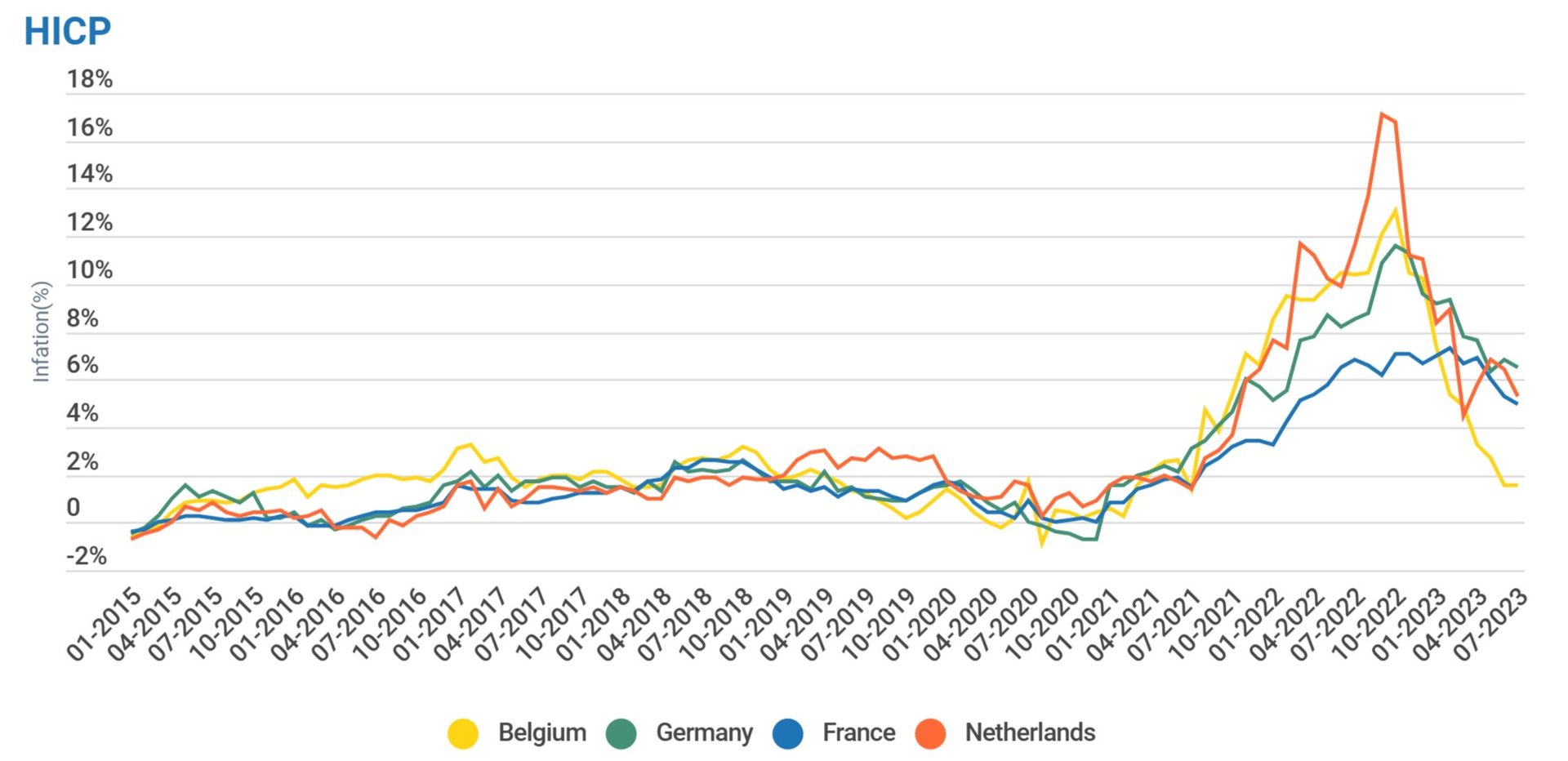Inflation in Belgium increased in July for the first time in nine months, as soaring food costs outweighed the impact of lower energy prices across the country.
According to a report published on Wednesday by Statbel, the Federal Government's official statistics office, Belgium's headline rate rose to 1.7% in July, up from 1.6% in June. The uptick represents the first time that inflation has increased since peaking at 13.1% in October last year.
Core inflation, which strips out energy and volatile food prices, remained significantly above the headline rate at 7.4%. Unlike the latter rate, however, core inflation declined relative to June (by -0.5 percentage points).

Credit: Statbel
Rising food costs were primarily responsible for the increase, with restaurants, cafés, bread, cereals, meat and dairy products all generating significant upward inflationary pressure. Overall, food and non-alcoholic beverages contributed 2.2 percentage points to the headline rate.
By contrast, lower energy costs had a significant downward impact on price pressures. Electricity is now 27.1% cheaper compared to this time last year, while natural gas is 62.4% less expensive.
Overall, energy contributed -4.9 percentage points to the headline rate, with natural gas the largest negative contributor (-2.47 percentage points).
Neighbourly rivalry
Despite the recent uptick, Belgium's inflation rate remains well below that of its neighbours. According to the latest flash estimate by Eurostat, the EU's official statistics office, Germany posted a headline rate of 6.5% in July, while the Netherlands (5.3%), France (5.0%), and Luxembourg (2.0%) all recorded rates well above Belgium.

Credit: Statbel
Overall, Belgium's inflation rate remains the lowest in the eurozone and well beneath the broader currency union average of 5.3%. Among the countries for which Eurostat possesses July data, only Belgium and Luxembourg registered rates at or below the European Central Bank's (ECB) 2% target.
The ECB has increased interest rates nine times over the past year as it attempts to dampen persistent European price pressures. At its last meeting in July, the ECB hiked its benchmark deposit facility rate to a record high of 3.75%.
Stronger than expected UK wage growth and a recent spike in European natural gas prices recently led analysts to predict that there is a one-in-three chance that the ECB will increase interest rates by 0.5 percentage points at its next monetary policy meeting in mid-September. The bank has raised rates by 0.25 percentage points at its last four meetings.

